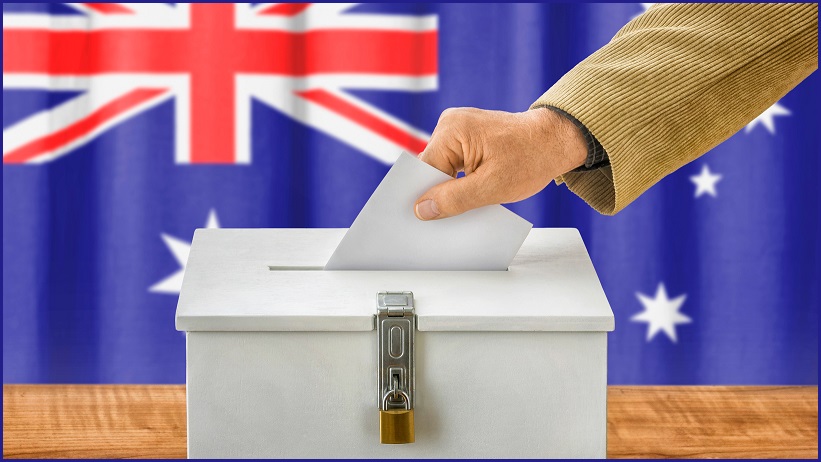Residents of three NSW local government areas will be called back to the polls after the state Supreme Court voided the results of their recent elections, calling failures of the state’s iVote electronic voting system a “material irregularity” that compromised the vote.
A number of residents were unable to cast votes in the 4 December poll after problems with the state’s iVote technology assisted voting system prevented them from logging on as it struggled to keep up with surging demand for the service.
Some 652,983 votes were cast using iVote between 22 November and 4 December, the NSW Electoral Commission (NSWEC) reported shortly after the election, which it said had seen demand for online voting nearly triple compared with any previous election.
The NSWEC’s postmortem analysis confirmed that high demand meant that many voters did not receive their iVote credentials early enough, preventing them from casting their votes and concluding that the results of six elections required “further analysis”.
Of these, three elections – in Kempsey, Singleton, and Shellharbour – were deemed to have had high chance of an alternative outcome had the 34, 55, and 54 missing iVote votes, respectively, been cast.
Alternative outcomes were observed in 61 per cent of cases during Monte Carlo simulations of the Kempsey results, the NSWEC found, with 43.2 per cent of possible outcomes showing a different result in Singleton and 7 per cent in Shellharbour.
Given those relatively high likely outcomes, the Supreme Court ruled this month that the iVote issues constituted a “material irregularity” in the voting, voiding the outcomes of the elections and requiring all three polls to be re-run within three months.
The NSWEC – which said in a statement that it “welcomes the resolution of the matter” and would begin preparing for recall elections – had already announced it will not use iVote for the NSW state election next year, recommending a “targeted review before internet voting be considered for use at future elections.”
Councillors were shocked by the decision and many said they weren’t prepared to go through the expense and stress of local elections all over again, despite NSWEC and Supreme Court assurances that the judgement was in no way a reflection on the individuals involved.
The Commission “remains a strong supporter of innovation in election delivery,” the Electoral Commissioner said in a statement, “[and] looks forward to continuing discussions on the future of internet voting, as well as exploring other ways to maintain trust in our democratic process by enriching citizen engagement with elections through technology.”
A black mark for online voting
Australia is one of the world’s most enthusiastic supporters of online voting, with 55 per cent of Australian respondents to a recent Tony Blair Institute for Global Change survey saying they would prefer to vote online – compared with just 35 per cent who prefer in-person voting.
Only Japan, Nigeria, and South Africa were more enthusiastic about online voting – and Australians were well ahead the citizens of comparable countries including the UK (43 per cent), Canada (41 per cent), France (35 per cent), and the US (29 per cent).
It’s not clear how that enthusiasm will change as the NSWEC moves to rewrite and certify iVote for its eventual redeployment – and extensively documents the process to maintain transparency and voter trust.
Online voting has been analysed in Australia for a decade and a 2013 analysis by the Electoral Council of Australia and New Zealand noted NSW citizens’ “very positive” reaction to iVote’s early incarnation, noting that “the current environment in NSW appears to be very receptive to using the internet to vote” and suggesting that citizens might tolerate issues with e-voting systems “with a degree of pragmatic tolerance”.
Yet there was little tolerance in the NSW Supreme Court decision in NSW Electoral Commission v Kempsey Shire Council, which analysed the iVote errors and decided their likely impact justified voiding the outcomes even though “it can be accepted that each Council’s reputation might be affected and faith in the democratic process will be undermined if a new election results.”
Concerns about security and election integrity have long been a bugbear for online voting, with Verified Voting interim co-director Mark Lindeman recently telling Stateline, an initiative of The Pew Charitable Trusts, that “there is no level at which internet voting is entirely safe… it’s just not ready yet and we don’t know how to get there.”
The latest debacle isn’t the first time the integrity of iVote, which was authored by Spanish software developer Scytl under a 2014 contract, has been questioned.
In 2019, an analysis by University of Melbourne security researcher Dr Vanessa Teague – who also testified as an expert witness in the Kempsey Shire Supreme Court case – confirmed that iVote’s decryption proof and verification specification was vulnerable to compromise.










